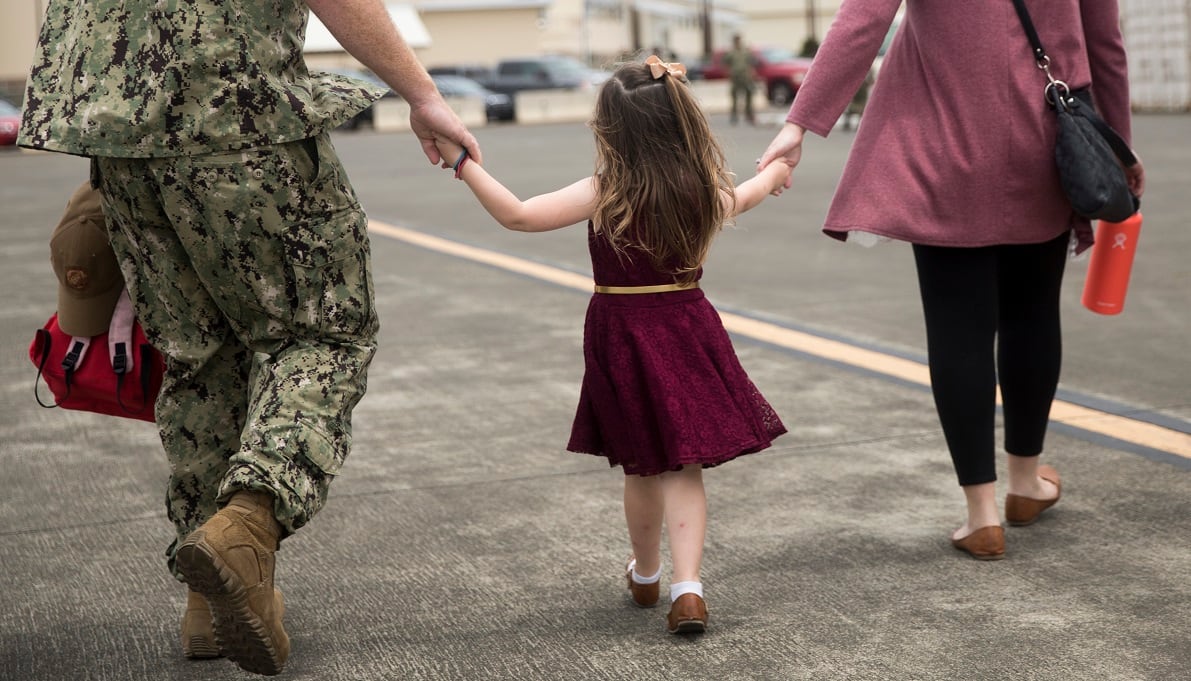With more than 800 service members fighting coronavirus a month after the the first soldier in South Korea tested positive, the Defense Department is keeping a close eye on the pandemic’s impact and preparing to make adjustments where necessary.
While a stop-movement order has canceled or extended some deployments and almost completely halted previously scheduled duty station moves for thousands, the services are continuing on with most operations and training ― including initial entry, as the Army and Air Force continue to bring send new recruits through basic training and onto their first units.
“We have already had those discussions and have mechanisms in place to go ahead and stop whenever we deem necessary,” Senior Enlisted Adviser to the Chief Ramon Colon-Lopez told Military Times on Thursday.
For its part, the Navy and Marine Corps have halted bringing new trainees into boot camp. Where deployments are concerned, for weeks ships’ crews have been required to complete a 14-day quarantine before getting underway, spending at least 14 days at sea in between port visits and another 14-quarantine once returned.
The Centers for Disease Control and Prevention has reported that the virus can be passed along by asymptomatic carriers, prompting many states and cities to announce shelter-in-place orders, requiring even presumably healthy people to minimize their risk of transmitting coronavirus.
But that kind of lockdown is much more challenging in the military, not only because some essential operations require troops to come into work, but because the risk of anyone not following those orders strictly could put a real dent in the readiness of individual units and beyond.
“We’ll do a risk assessment with the services,” Colon-Lopez said, with input from the combatant commanders as to how the outbreak is continuing to impact their missions.
Pentagon leaders regularly cite readiness and their people, interchangeably, as their no. 1 priority, but finding the balance between readiness and health risks has been an ongoing struggle.
“The reality is that there are certain things that we are going to do,” Colon-Lopez said, because the national security risks take priority. “Certain things ― not everything.”
But, he added, there is an understanding that not everything the military does is 100-percent essential to national security at every given moment, and that some of it can be scaled down in a pandemic.
RELATED

“We have to be really careful on over-generalizing that particular comment ― not saying that everything we do in the military is necessary and therefore we’re going to put people at risk,” he said.
In the meantime, senior leadership has been urging commanders to socially distance their troops wherever and however possible, including holding outdoor meetings, breaking physical training into smaller groups and allowing telework.
“The accountability clearly falls on the chain of command,” to enforce that guidance, Colon-Lopez said, though it’s unclear whether there have been any repercussions for those who haven’t.
Defense Secretary Mark Esper told Military Times March 23 that he would look into any issues he felt needed following-up, but that he hadn’t had to reach down into formations thus far.
“There will be inconsistencies because every situation is unique. It’s unique by the type of unit, it’s unique by the mission, it’s unique by the location – and any other number of factors,” Esper said. “...but again, I have to trust our commanders and our senior [non-commissioned officers] are taking all the right precautions.”
Despite word from the top, troops have reached out to Military Times or shared stories on social media of units going about business as usual.
“We expect people to go ahead and execute the orders ... provided by the Pentagon to keep people safe,” Colon-Lopez said. “Are we going to be out there, double-checking everything that our commanders are doing in the field? Absolutely not.”
Meghann Myers is the Pentagon bureau chief at Military Times. She covers operations, policy, personnel, leadership and other issues affecting service members.





